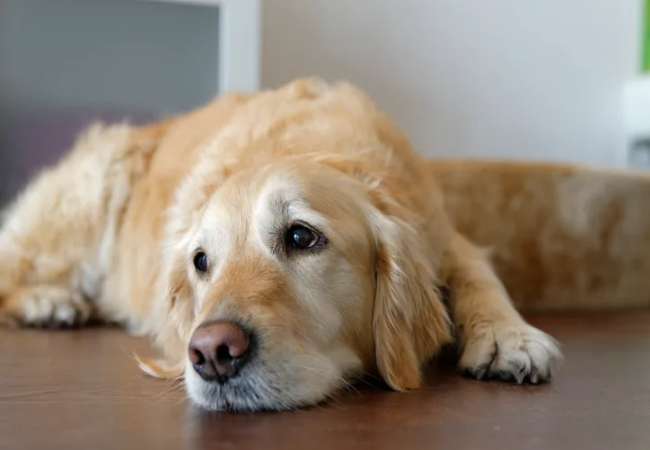Veterinary Guide to Canine Rotavirus Infections 2025 🩺🐶

In this article
Veterinary Guide to Canine Rotavirus Infections 2025 🩺🐶
By Dr. Duncan Houston BVSc
🧬 What Is Rotavirus?
Rotavirus is a common non-enveloped RNA virus in the Reoviridae family. In dogs, it primarily infects the small intestinal enterocytes, causing mild inflammation and watery diarrhea.
👥 Who’s at Risk?
- Puppies under 12 weeks: immature immunity leads to most cases.
- Immunocompromised or stressed dogs: e.g., shelter or kennel pups.
- Adult dogs: usually asymptomatic carriers, often with fecal shedding of virus.
⚠️ Clinical Signs
- Watery to semi-formed diarrhea; may be mild to moderate.
- Occasional vomiting or dry retching.
- Reduced appetite, weight loss, lethargy.
- Dehydration signs: tacky gums, sunken eyes; fever in some cases.
- Severe dehydration → collapse or even death in vulnerable pups.
🔍 Disease Mechanisms
Rotavirus damages enterocytes, reducing absorptive capacity and increasing secretion/osmotic imbalance, leading to diarrhea. Viral toxin NSP4 disrupts ion transport and gut motility; severe cases may cause vomiting via serotonin-mediated pathways.
🔍 Diagnostic Approach
- History & exam: vaccination, age, environment (kennels/shelter).
- Fecal tests: antigen ELISA, PCR; routine fecal flotation may be negative.
- Rule out: Parvovirus, coronavirus, parasites—via fecal and antigen panels.
- Supportive labs: CBC/Chem to assess hydration, electrolytes, protein loss.
🛠️ Treatment Strategies
1. Supportive Care
- Fluid therapy: Oral rehydration for mild cases; IV fluids for dehydrated pups.
- Anti-emetics: e.g., maropitant to reduce nausea.
- Bland diets: Low-fat, easily digestible meals (chicken & rice, GI prescription).
- Probiotics: S. boulardii or L. rhamnosus improve gut recovery.
- Electrolytes & nutrition: Supplements if the appetite is poor.
2. Infection Control
- Isolation: Separate infected pups for ~10 days post-onset to reduce spread.
- Hygiene: Clean/disinfect soiled areas with bleach or viricidal agents.
- Hand hygiene: Thorough washing by caregivers—critical in kennels.
3. Monitoring & Prevention
- Follow up with hydration status, weight, and stool consistency checks.
- Prevent coinfections: ensure parvo/distemper vaccination is current.
- Consider hygiene protocols in high-risk environments (breeders, shelters).
📈 Prognosis
- Puppies: Mild cases resolve in 5‑10 days; severe cases may require hospitalization.
- Adults: Usually asymptomatic carriers.
- Zoonosis: Rare, but possible—practice hygiene around sick pups.
📱 Ask A Vet Telehealth Support
- 📸 Upload stool photos to track diarrhea severity and color.
- 🔔 Medication & hydration reminders for oral fluid therapy.
- 🩺 Symptom triage via video calls—determine if vet visit required.
🎓 Case Spotlight: “Toby” the Refuge Pup
Toby, a 6‑week-old rescue pup, presented with a 3-day history of watery diarrhea and decreased appetite. Fecal antigen test confirmed rotavirus; parvovirus was negative. Oral rehydration therapy and bland diet, with probiotics, improved stool in 5 days. The owner used Ask A Vet for photo assessment and hydration reminders. Toby regained weight in 2 weeks and remained healthy. 🚀
🔚 Key Takeaways
- Canine rotavirus typically causes mild-to-moderate diarrhea, mainly in puppies.
- Diagnosis relies on fecal antigen/PCR; rule out more serious infections.
- Treatment is supportive: fluids, anti-emetics, bland diet, probiotics, hygiene.
- Prognosis is good with care; isolate to reduce spread.
- Ask A Vet telehealth enables remote monitoring, treatment reminders, dietary planning, and medication delivery 📲🐾
Dr Duncan Houston BVSc, founder of Ask A Vet. Download the Ask A Vet app to support your puppy through rotavirus—from remote assessment and hydration tracking to medication alerts and nutritional guidance 🐶📲






